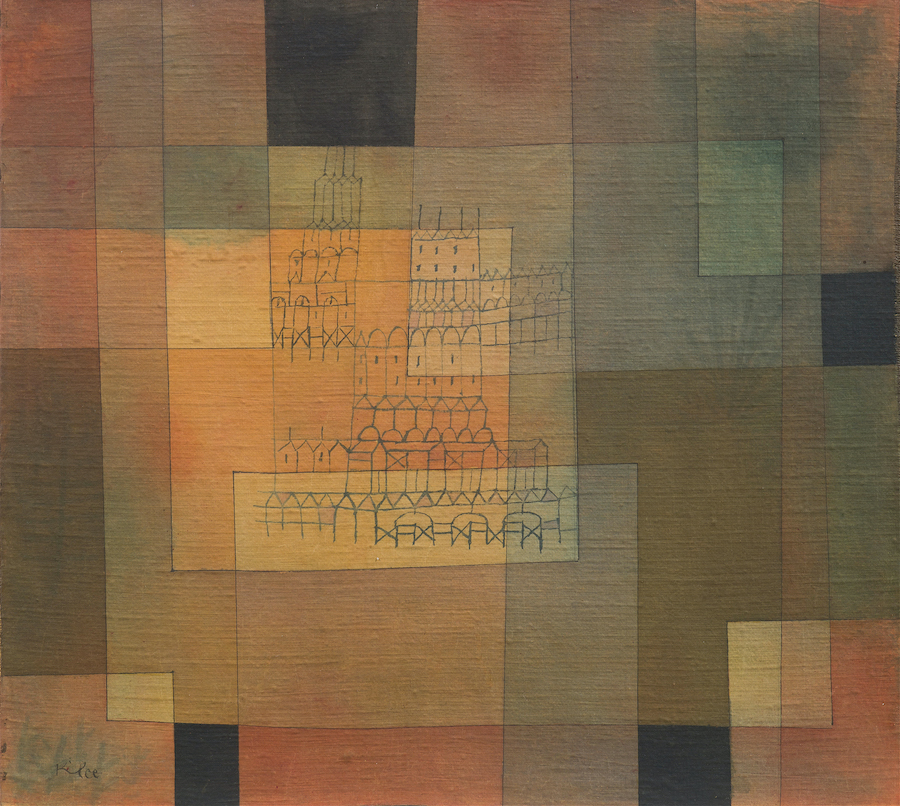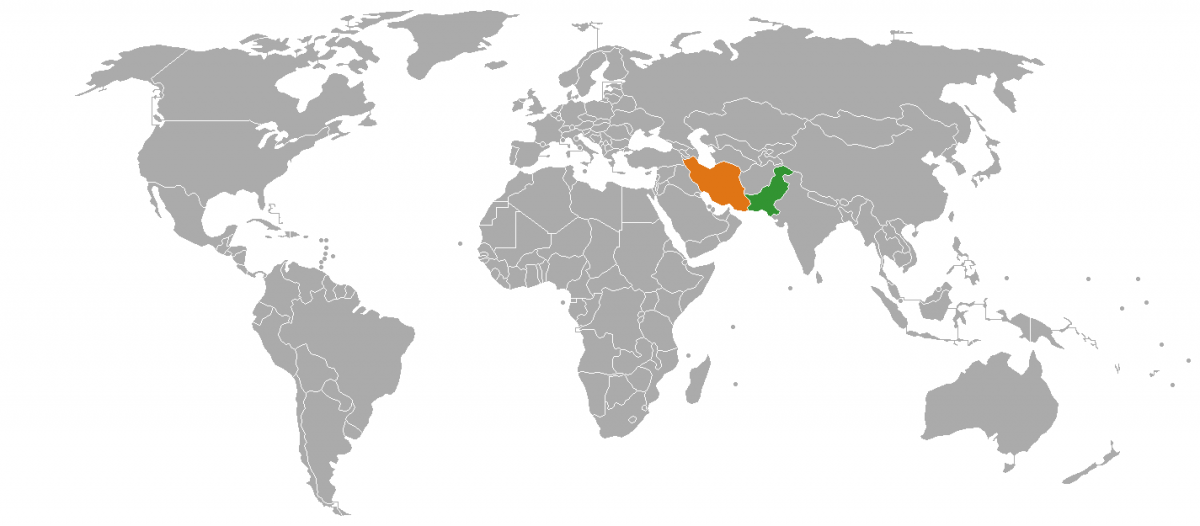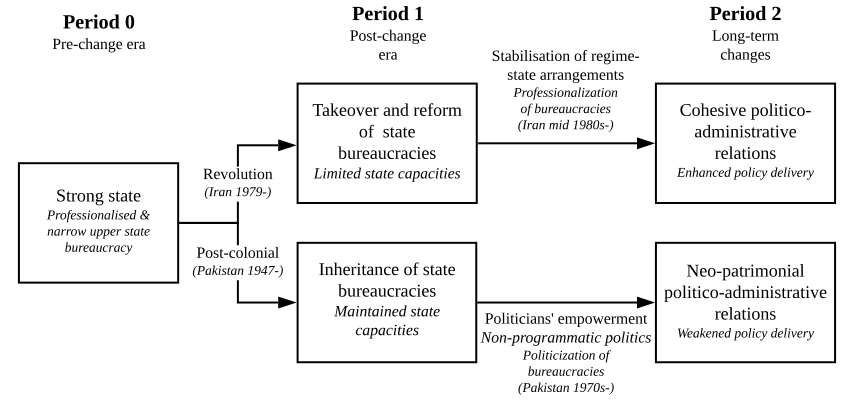Dealing with the State: Politicization of State Bureaucracies and Differential State Capacity in Post-Revolutionary Iran and Post-Colonial Pakistan

When scholars examine the strength of states in the Middle East (i.e. capacity to drive development, extract resources, exercise violence, and regulate populations), they usually resort to assessing states’ territorial reach and their autonomy from societal actors, as well as civilian bureaucracies’ professionalisation and politicisation, that is, in the latter case, the “substitution of political criteria for merit-based criteria in the selection, retention, promotion, rewards, and disciplining” of public servants (Peters and Pierre 2004, 2). Observers tend to frame this professionalisation-politicisation nexus as a zero-sum game, pointing to politicisation’s detrimental effects on state capacity, as it is expected to lower bureaucratic competences and increase corruption. Yet, research has shown that bureaucracies’ politicisation may also—under given institutional conditions—enhance service delivery and responsiveness to policy demands. Moreover, scholars too often insulate the modalities of politicisation from the genealogy of the state.
By re-embedding the politicisation of civilian bureaucracies in the historical trajectories of political regimes since their inception—and hence considering it as a dependent variable, I seek to illustrate how specific patterns of relations between political and bureaucratic elites are conducive to different levels of long-term state capacity. Precisely, I investigate the historical determinants of changes in state capacity in the Islamic Republics of Iran and Pakistan, two regimes whose predecessors had strong states apparatuses, staffed with small, educated, and Westernised senior bureaucrats, but which experienced diverging state trajectories. While the Iranian Revolution dismantled the capacities of the Pahlavi state (1925-1979), the state’s capacity to deliver public policies has since improved. Conversely, while independent Pakistan maintained the strong state institutions of British India (1858-1947), developments after the 1970s led to a decline in state capacity. The question is thus how to account for Iran’s enhanced state capacity and the dwindling of the Pakistani state’s autonomy vis-à-vis society that mitigates long-term capacity to deliver policies.
This requires opening up the “black box” of the state by examining in historical perspective arrangements that tie together political elites—defining policies—and bureaucratic elites—tasked with their implementation. First, I show that post-revolutionary or post-colonial paradigms strongly affect how new regimes deal with former state bureaucracies, which, in turn, shapes short-term policy-making capacity. Second, while post-colonial states inheriting strong bureaucracies are often better suited to ensuring governance than post-revolutionary states, I suggest that in the long-term, this trend can be reversed. In Iran, the initial adverse effects of the politicisation of post-revolutionary bureaucracies were incrementally mitigated over time. In contrast, despite Pakistan’s maintenance of former civil services, subsequent periods of political elites’ re-empowerment tended to facilitate a re-politicisation of civil services in a fashion that was detrimental to state capacities.
Figure 1. Conceptual approach to exploring differential state capacities
Regime–State Relations after Political Change: Constellations of Change and Continuity
When a new political regime (i.e. formal and informal arrangements that define the access to, exercise of, and distribution of power) is established, new political elites need to decide how to deal with inherited state bureaucracies. Such decisions are heavily determined by trade-offs politicians are faced with, between the competence and the loyalty of bureaucratic elites, that they wish to maximise. Because the (re)design of regime–state relations contributes precisely to stabilising still un-formalised political regimes, political elites’ propensity to favour the continuity of state capacities (emphasising competence), or conversely the dismantling of these in order to fully control the state (emphasising loyalty), hinges upon their short-term concerns and the stakes they hold in the former state. I show that the nature of political change in post-1979 Iran and post-1947 Pakistan laid the foundations for subsequent politico-bureaucratic relations in each case, shaping short-term state capacity.
Regimes Controlling States: Politicisation of Bureaucracies in Post-revolutionary Iran
A number of regimes stemming from revolutions have first accommodated former bureaucratic elites in order to benefit from their monopoly over state competences, but then resorted to purge them, replaced with heavily politicised new bureaucrats: examples include the 1793-95 Reign of Terror in revolutionary France, the Soviet Union after 1936, and Guevarist Cuba between 1966 and 1970. As an instrument of regime stabilisation, this approach has allowed new regime elites––often the most radical within revolutionary coalitions––to capture the state.
In Iran, civil servants had been maintained by the interim government in the early days of the revolution. Yet, from November 1979 onwards, revolutionary clerics with no stake in the former state side-lined lay Islamists, which triggered the purge of former bureaucratic elites. By emphasising loyalty, they prioritised control over the state. Consequently, new bureaucrats were initially recruited under patronage for their revolutionary credentials. Although this facilitated the stabilisation of the revolutionary regime, the new bureaucracy’s intense politicisation soon proved challenging, as it jeopardised the regime’s ability to maintain sovereignty and implement pivotal public policies for its own legitimation (for example, welfare and agrarian developments).
States Controlling Regimes: Inherited Bureaucracies in Post-colonial Pakistan
While Iran exemplifies the post-revolutionary model, Pakistan is archetypal of a post-colonial regime that inherited the administrative structures and elites of a strong colonial state. Within post-colonial transitions, political elites’ sociological affinity with former bureaucrats and the stakes they hold in former state structures incentivise them to maintain bureaucracies, particularly when state institutions had developed strong territorial reach and had been staffed with competent indigenous officers. In these cases, the maintenance of strong states often pre-empts the emergence of an autonomous and pluralist political class; sometimes inherited state bureaucrats align with their military counterparts (for example, 1950s-1960s military-bureaucratic Pakistan, 1920s-1930s Kemalist Turkey), sometimes, in the absence of professionalised and autonomous militaries, inherited civil services champion single parties (for example, post-independence Tunisia). Even when politicians manage to assert power over the state, they still garner state bureaucrats’ strong distrust (for example, post-1971 Pakistan, post-1946 Turkey).
In the case of Pakistan, the post-colonial regime inherited British India’s “steel frame”, itself derived from the Mughal bureaucracy. Although leaders of the Pakistan Movement held no position in the bureaucracy of the Raj, they formed a British-educated landed class of law graduates who occupied key positions in political institutions or as lawyers. Upon taking power, they favoured the continuity of not only civilian but also military bureaucracies. Pakistan thus inherited both the former administrative architecture—a small, powerful, and corporatist class of upper civil servants—and centralised recruitment and training institutions.
However, in Pakistan, the maintenance of professionalised state bureaucracies pre-empted politics. While indirect rule had granted prominent power to district administrators, landed elites had become bureaucratic brokers imbued with an authoritarian ethos. Political elites of the Muslim League failed to capture the state’s spatial and societal reach. Moreover, post-1947 crises (the Kashmir War, the influx of refugees) reinforced bureaucratic elites’ control over the state.
By allying themselves with landowning and industrialist classes, and by mediating their interests with indigenous—and foreign—bourgeoisies, military-bureaucratic oligarchies drove state-led conservative modernisation while curtailing politicians’ control over the state. Although liberal in orientation, inherited civilian bureaucrats (that is, not established by a native bourgeoisie) proved authoritarian in practice (Heper 1976). Moreover, the strong administrative reach across the territory curbed incentives to build “mobilizational” parties to enhance the state’s territorial penetration, similar to the Tunisian Neo-Destour, Syrian and Iraqi Ba’ath, and Algerian FLN.
In other words, while revolutionary transformations like in Iran allow new regimes to capture state apparatuses—and thus to dissolve the power of bureaucracies, post-colonial political transformations as in Pakistan often involve state bureaucracies capturing the political regime. In the absence of arrangements between state and regime elites regarding political participation and bureaucratic autonomy, either post-revolutionary authoritarianisms or totalitarianisms, or centralist bureaucratic authoritarianisms thrive.

Pakistan and Iran on a world map. Image available in the public domain.
Reversing Trends: Contrasting Trajectories of Politicisations and State Capacity
Post-revolutionary changes are undoubtedly more traumatising than most post-colonial transformations as regards immediate state capacities. Yet, comparing long-term reconfigurations of the Iranian and Pakistani state show how path dependencies are subject to erosion.
Stabilising Politico-Bureaucratic Relations in Post-revolutionary Iran
In Iran, the politicisation of the state bureaucracy was gradually embedded into stabilised politico-bureaucratic arrangements, feeding policy-making capacities and regime–state cohesion. While the revolutionaries first substituted incumbent bureaucrats with unqualified militants, they soon sought to revalorise administrative competency, in order to deliver on revolutionary policy demands, and maximise regime survival, notably in the context of the Iran-Iraq war. Upper bureaucrats’ careers, training, and recruitment, were incrementally institutionalised, aiming to concurrently accommodate effective policy-making and state responsiveness to political demands. First, politicisation mechanisms were stabilised differently across bureaucracies: while upper provincial bureaucrats’ loyalty were directed towards a politician—tying careers to stabilised factional politics since the 1990s, diplomats were required to remain insulated from domestic politics. Nonetheless, politicisation also shaped the recruitment and training of diplomats, by way of quotas and job interviews on the one hand, or selective promotions on the other hand, and thus ensured their compliance with regime tenets (e.g. anti-imperialism, sovereignty) and incentivised their social disciplining. Second, although uneven, professionalisation was encouraged via competitive examinations designed for recruitment into diplomatic and judicial apparatuses, as well as other criteria for promotion. In the case of provincial governors, given popular scrutiny over bureaucratic appointments, and university degrees’ prestige, politicians’ ability to patronise experienced bureaucrats enhanced their electability. In a context of political competition, politicisation may thus spur professionalisation. Because the revolution dismantled state institutions, they were redesigned in a way that accommodated bureaucracies’ loyalty to the new regime with enhanced policy delivery capacities, feeding regime legitimation.
Neo-Patrimonialism in Democratising Pakistan
By contrast, in Pakistan, politicians’ empowerment from the 1970s went hand in hand with the neo-patrimonialisation of the state; the role, competence, and prestige of bureaucrats incentivised politicians to capture rather than dismantle state institutions. From Zulfiqar Ali Bhutto’s 1973 reforms onwards, politicians sought to re-politicise the civil service and curb its autonomy (for example, ending bureaucrats’ protected tenure, dismantling of the elite Civil Service of Pakistan, separating executive and judicial powers hitherto vested in district administrators). At the same time, the bureaucracy’s inherited administrative power was instrumental for politicians, both for the purpose of policy-making (for instance, nationalisations) as well as for private and electoral purposes. In the 1990s, party politics further incentivised civil servants to join camps, boosting careers and senior bureaucrats’ ability to divert public resources. The state was thus captured by its political and administrative agents.
Why, then, has the politicisation of the Pakistani bureaucracy, contrary to Iran, weakened state autonomy from society, and hence dampened the state’s long-term capacities to deliver? First, while Médard (1990) shows how states can simultaneously be “overdeveloped” (that is, administratively strong) and “underdeveloped” (that is, poorly autonomous vis-à-vis society), I suggest that it is precisely the “overdevelopment” of Pakistan’s inherited state––both its physical (administrative organisation and territorial reach, training and recruitment institutions) and mental structures (the power and prestige of state jobs)––that explains its “under-development”. The conjunction of bureaucrats’ undermined autonomy from politicians, yet combined with considerable power over state resources (which is weaker in Iran) encourages them either to shift from “service” to “self-service” or, conversely, to “play by the book”. Second, while state capacity is pivotal to the durability of Iran’s revolutionary regime, feudal local politics in Pakistan does not incite politicians to deliver, beyond clientelism. In Iran the strength of political factions’ ideological and policy anchorage accounts for the bonds of loyalty that tie senior bureaucrats to politicians, the former being held accountable to the latter, and to the population. Conversely, the weakness of programmatic politics in Pakistan both enhances bureaucrats’ unaccountability and encourages them to shift allegiance for opportunistic and extractive purposes. Third, neo-patrimonialism in the Pakistani state was reinforced by the eroded social prestige, for upper-middle classes, of state jobs, which resulted in bureaucracies’ sociological shift towards the lower-middle classes. This equally occurred in Iran. However, in Pakistan, this sociological change fuelled neo-patrimonialism due to the lower-middle classes’ propensity to use bureaucracies’ inherited “overdeveloped” policy and jurisdictional power to foster private interests, while in Iran, the enhanced dependency of bureaucrats towards politicians (barring diplomacy) further tied bureaucrats’ hands.

Figure 2. The politicisation of bureaucracies in post-revolutionary and post-colonial paradigms
Conclusions
Current state capacities depend on the character of the bureaucracy and its relationship with politicians which, in turn, depend upon bureaucracies’ historical formation. To account for the contrasting evolutions of state capacity in Iran and Pakistan in the last forty years, whereby the former’s ability to deliver has increased while the latter’s has declined, I have suggested that these trends can be explained by diverging modalities of states bureaucracies’ politicisation over the long-term. More precisely, beyond showing that the nature of political change from which regimes stem shapes short-term state capacities, I have sought to challenge the supposed strength of path dependency to explain later development. While in Iran, subsequent professionalisation is not precluded by initial politicisation, in Pakistan, “historical” professionalisation does not ensure long-term professionalisation.
References
Heper, Metin. 1976. “Political Modernization as Reflected in Bureaucratic Change: The Turkish Bureaucracy and a ‘Historical Bureaucratic Empire’ Tradition”. International Journal of Middle East Studies 7 (4): 507-521.
Médard, Jean-François. 1990. “L’État Patrimonialisé”. Politique Africaine 39: 25-36.
Peters, Guy, Pierre, Jon. 2004. “Politicization of the Civil Service: Concepts, Causes, Consequences”. In Politicization of the Civil Service in Comparative perspective. The Quest for Control , edited by Guy Peters and Jon Pierre, 1-13. London and New York: Routledge.
Guillaume Beaud graduated from King’s College London, Sciences Po (MRes, Comparative Politics) and the INALCO (National Institute for Oriental Languages and Civilizations) (MA Persian and Middle Eastern studies). His doctoral research examines the transformation of bureaucracies in the Islamic Republic of Iran and in post-colonial Pakistan, with a focus on the reforms of recruitment and training institutions, as well as career systems.
Cover: Polyphonic Architecture, Paul Klee, 1930. Painting in the public Domain.










